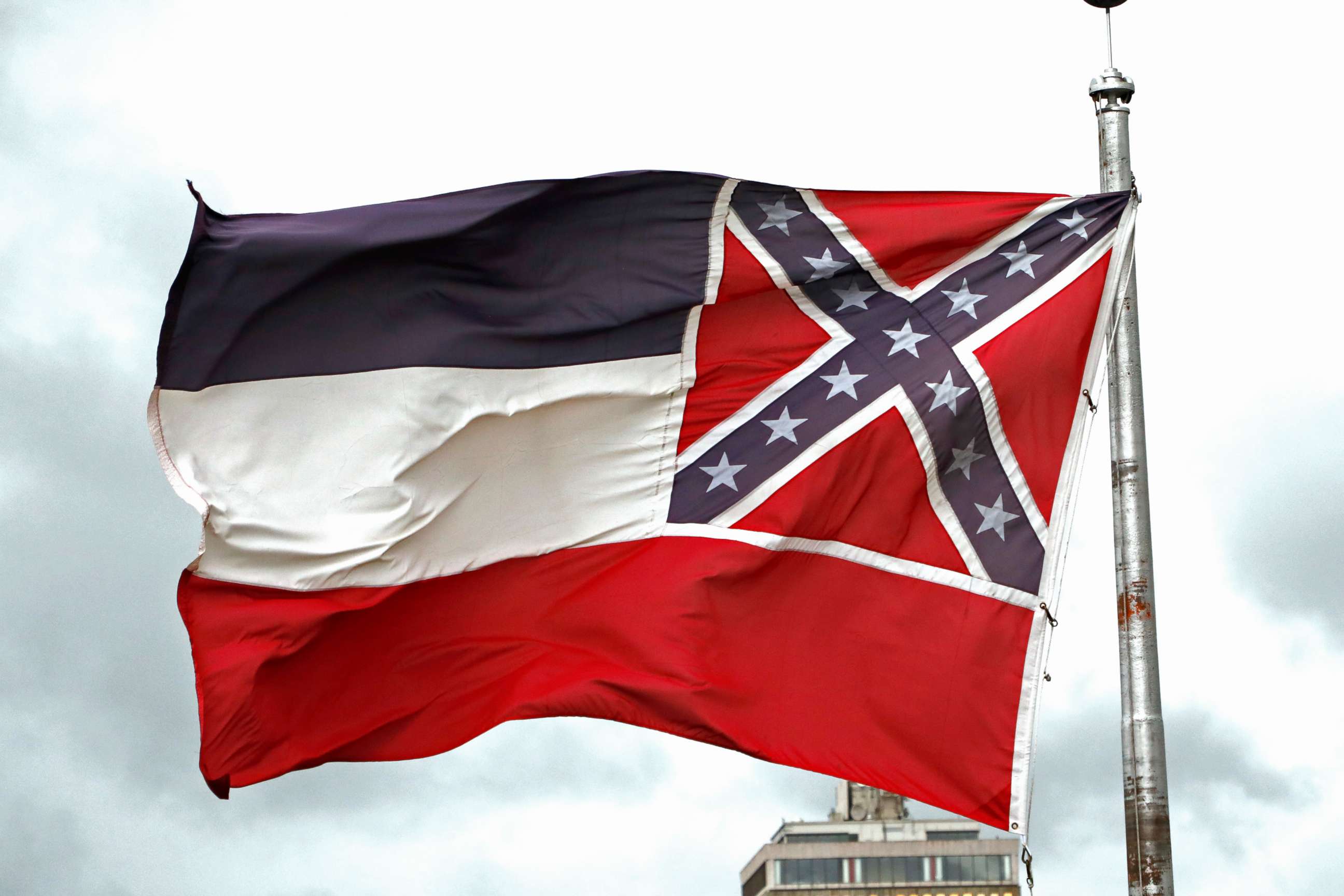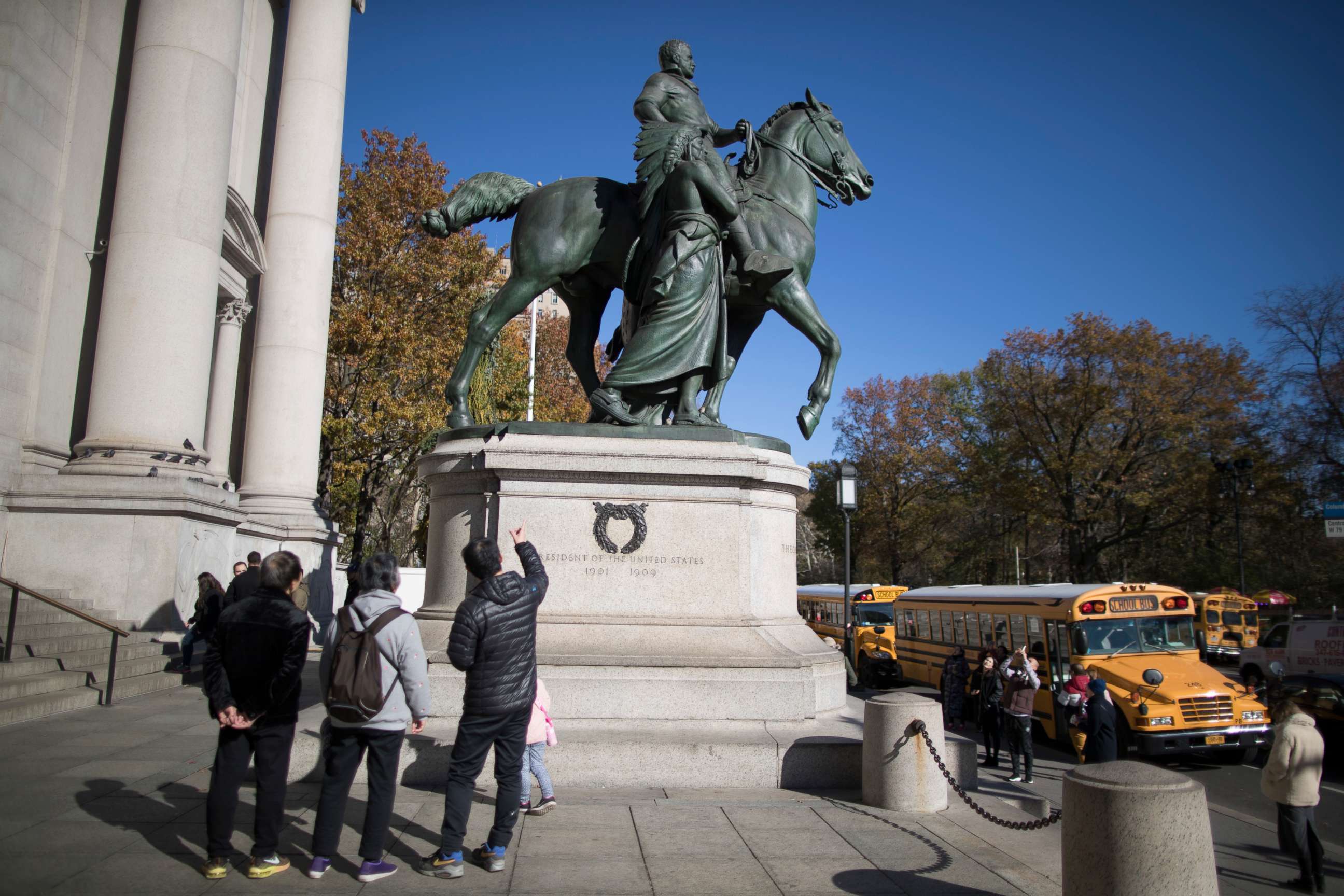Descendants weigh in on Confederate statue debate
In recent weeks, statues of Confederate leaders have toppled to the ground amid nationwide protests, and Mississippi lawmakers have decided to remove the Confederate battle emblem from the Mississippi state flag.
ABC's Lionel Moise spoke with the descendants of Robert E. Lee and Thomas Jefferson about the debate raging across the country.
Listen to ABC's Lionel Moise reporting for ABC News Radio's "Perspective" podcast:
Mississippi was the last state in the country to still have the Confederate battle emblem on its flag, but last week state officials made the decision to officially remove it.
"I know there are people of goodwill who are not happy to see this flag change," Mississippi Governor Tate Reeves said as he signed the bill. "They fear a chain reaction of events, erasing our history, a history that is no doubt complicated and imperfect."
But, the governor said, "We need a new symbol."

A state commission will now come up with a new design that residents will accept or reject in November.
While Mississippi looks ahead, the nation continues to debate whether certain monuments and statues dedicated to the past should be removed.
In St. Louis, a statue of Christopher Columbus was removed last month after a public push. In New York City, a statue of President Theodore Roosevelt sitting on a horse with a Native American man on one side and an African American man on the other will be removed from the front of the American Museum of Natural History.

Rev. Robert Lee IIII, is the great, great, great nephew of Confederate General Robert E. Lee and shares his name. As a child, he was taught about Lee's legacy as a Christian who wanted to fight for states' rights. But in his journey to become a pastor, he says he realized he needed to change his thought process.
"Why are we protecting statues that symbolize oppression instead of protecting the people that were oppressed?" Lee asked.
Amid the protests, President Donald Trump has signed an executive order to protect monuments, memorials and statues, and has tweeted about jailing protesters for up to 10 years. But as some fight to preserve the monuments, Rev. Lee believes they should be taken down now.
"This is not about erasing history," Lee said. "This is about being honest, that our history has been filled with a heritage of hate, with the heritage of racism, and if that's something that we want in our city squares, then we need to examine that."
Shannon LaNier, a journalist based in Houston, is a ninth generation descendant of President Thomas Jefferson and his slave, Sally Hemings.
LaNier, one of Jefferson and Hemings’ six great-grandsons, is the author of "Jefferson's Children: The Story of One American Family." He recently published an opinion piece calling for statues of Jefferson and other similar monuments to be taken down.
"For many years, I used to give Thomas Jefferson a pass because of all the great things that he's done for this country," LaNier told ABC News. "But you really do have to look at the whole person and what else he did. Thomas Jefferson wrote that 'All men are created equal.' When he wrote those words, they did not include black people, they didn't include women, they didn't include people who didn't own land."
LaNier says history has been erased by not telling the entire story.
"We have to tell his full story and give validity and a voice to all those other people that gave their blood, their sweat and their tears to make his life possible," LaNier said.
LaNier, however, believes that monuments should be preserved -- moved to a museum or a library where the public can be educated on their full history.
He likens it to putting yourself in someone else's shoes.
"Imagine if you or your loved one, the person you love the most in your life, was killed or raped by someone," LaNier said. "And then someone came along and said, 'We're going to put a statue in the town square or in your front yard of the person who killed or raped your loved one.' How would you feel?"
Rev. Lee acknowledges that the conversation is a difficult one -- and one he continues to have with his own family. But he says that now is the time for the country to come together.
"Someone asked me the other day, do I think that the statue should be replaced with anything?" Lee said. "I actually think we should leave just the mount there for a while, because that in and of itself has become a monument to what might be, what could be, what could be possible if we actually listen to the voices of the people."




